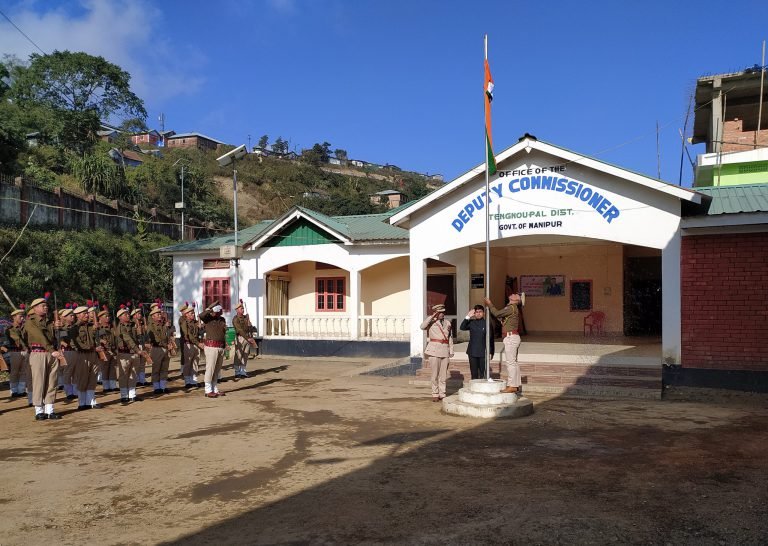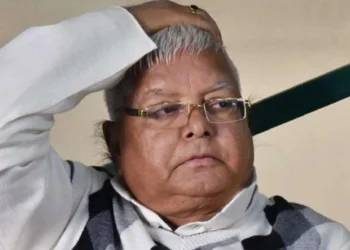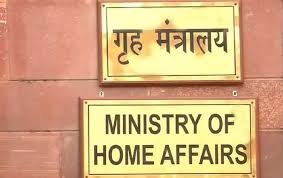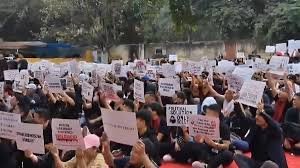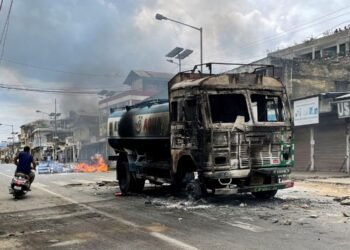With DCs changing almost every year, the people of Tengnoupal are left grappling with stalled projects, broken promises, and fading hope.
BY PC Bureau
July 28, 2025: Since its creation in December 2016, the border district of Tengnoupal has seen an unusual churn of Deputy Commissioners (DCs), raising serious concerns over administrative continuity, grassroots development, and crisis response in a district already strained by ethnic conflict and topographical challenges.
Records reveal that Tengnoupal district has seen an unusually high administrative churn, with as many as ten Deputy Commissioners appointed in less than nine years—a turnover rate significantly higher than in comparable districts across Manipur. In several instances, the tenure of a DC has lasted merely three to four months, raising serious concerns about continuity and commitment to local governance.
While developmental aspirations of the hill district remain unmet, officers appear eager to exit the post—often using political and bureaucratic influence to secure transfers. Others, like the current DC Saurabh Yadav, have effectively abandoned the district headquarters, shifting base without any care for his responsibility.
READ: Manipur: Lingmai Naga Students Body Decry Blockade, Urges Immediate Withdrawal
The consequences of such administrative instability are manifold. Development projects—especially infrastructure, health, and education—have suffered due to lack of continuity and bureaucratic leadership. Each new DC brings a different set of priorities and requires time to understand the complex ground realities of the region, which includes an international border, a volatile security environment, and deep social fragmentation.
Manipur:Even IAS officers from outside learn fast-the hills don’t matter, only the valley does. Tengnoupal DC Saurabh Yadav’s actions reflect this harsh truth. Neglecting hill people has become routine. He’s not the first, and sadly won’t be the last@BhallaAjay26 @RajBhavManipur pic.twitter.com/amZVSV9eck
— Florence Guite (@FlorenceGuite_) July 27, 2025
Locals and civil society organisations voice frustration. “We have to start from scratch every few months,” said a former district official on condition of anonymity. “Projects are delayed, files go missing, and no one takes long-term ownership.”
Experts argue that frequent transfers also weaken institutional memory, which is vital in a region dealing with inter-ethnic disputes and cross-border smuggling. Without stability at the administrative helm, district-level governance struggles to gain traction or earn public trust.
As Manipur continues to reel under ethnic unrest since the violence of May 3, 2023, the state government’s handling of postings—especially in sensitive districts like Tengnoupal—demands scrutiny and reform. Unless policy is driven by ground needs and not merely political or bureaucratic compulsions, the district will remain in a cycle of disruption.
READ: After Abandoning HQ, Tengnoupal DC Caught in Kuki-Zo–Meitei Crossfire
The DC’s office has lately become a flashpoint of ethnic tension between the Kuki-Zo community and the Meitei groups, with both sides lobbying for where the DC should operate from. While the district headquarters is officially located at Tengnoupal, reports suggest the office has periodically functioned from alternate locations like Moreh or Chandel, allegedly due to security and logistical concerns. Recently, MLA Leptao Haokip from the Kuki-Zo community urged the DC to return to the official HQ, a demand that was met with protests from some Meitei civil groups, who insisted the DC stay put, citing accessibility and neutrality concerns.
Caught between these competing demands, DC Saurabh Yadav now faces the unenviable task of navigating not just terrain, but also ethnic sensitivities, all while ensuring the district administration does not collapse into paralysis.
Based on official data from the Tengnoupal district website, Tengnoupal has had ten Deputy Commissioners since its creation in December 2016
| # | Name | Tenure Start | Tenure End | Duration |
| 1 | Kh. Ragumani Singh, IAS | 9 Dec 2016 | 22 May 2018 | ~17 months |
| 2 | A. Tombikanta Singh, IAS | 23 May 2018 | 16 Sep 2018 | ~4 months |
| 3 | Heikham Rupachandra Singh, IAS | 17 Sep 2018 | 31 Dec 2019 | ~15 months |
| 4 | Mayanglambam Rajkumar, IAS | 3 Jan 2020 | 23 Apr 2021 | ~15 months |
| 5 | Naorem Praveen Singh, IAS | 3 May 2021 | 1 Aug 2021 | ~3 months |
| 6 | Lourembam Bikram Singh, IAS | 4 Aug 2021 | 9 Jan 2022 | ~5 months |
| 7 | Mannuamching, IAS | 9 Jan 2022 | 22 Sep 2022 | ~8 months |
| 8 | Ranjan Yuman, IAS | 22 Sep 2022 | 18 May 2023 | ~8 months |
| 9 | Krishna Kumar, IAS | 18 May 2023 | 9 May 2025 | ~24 months |
| 10 | Saurabh (Subhash) Yadav, IAS | 9 May 2025 | Still in office | Ongoing since May 2025 |



